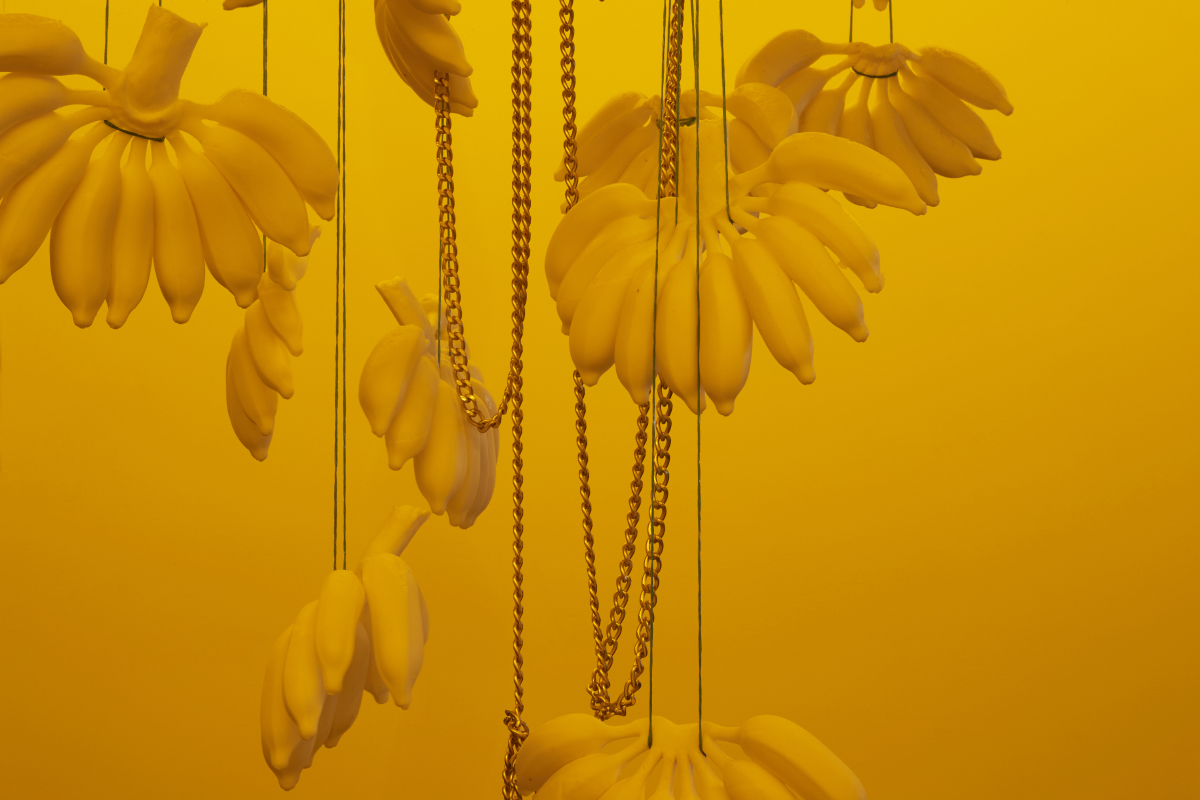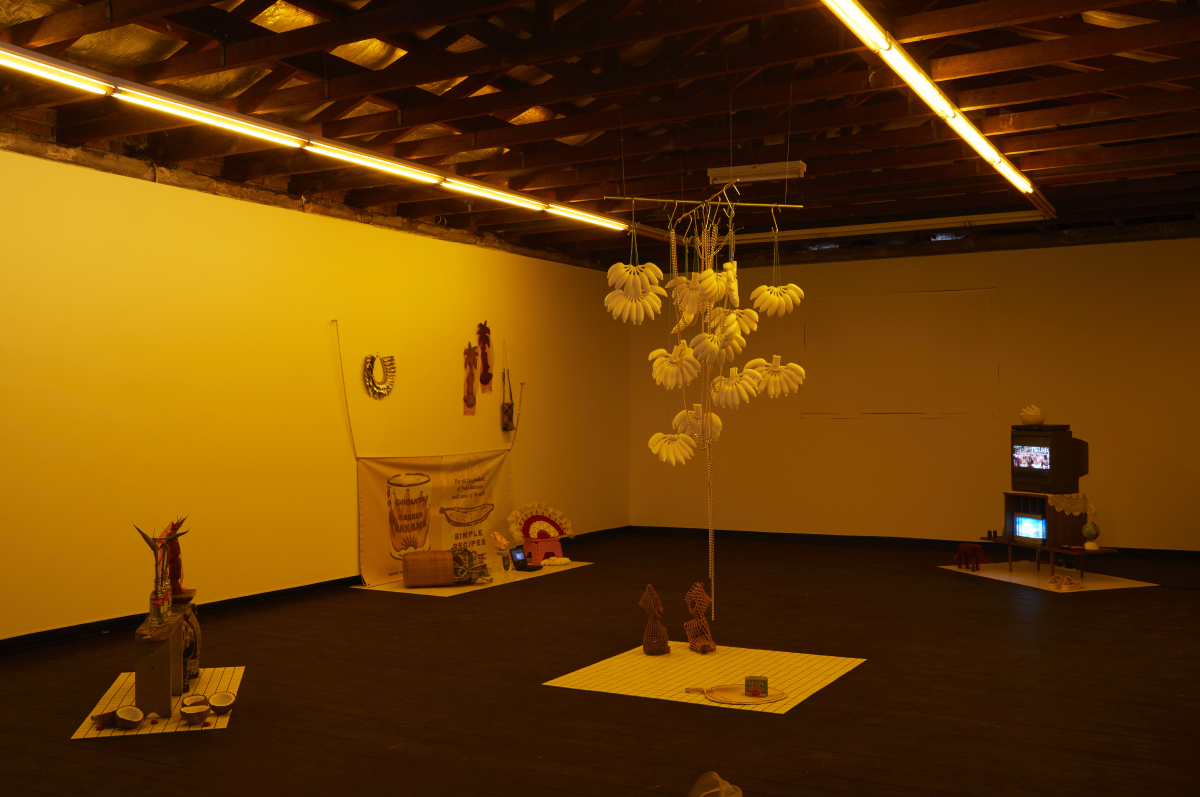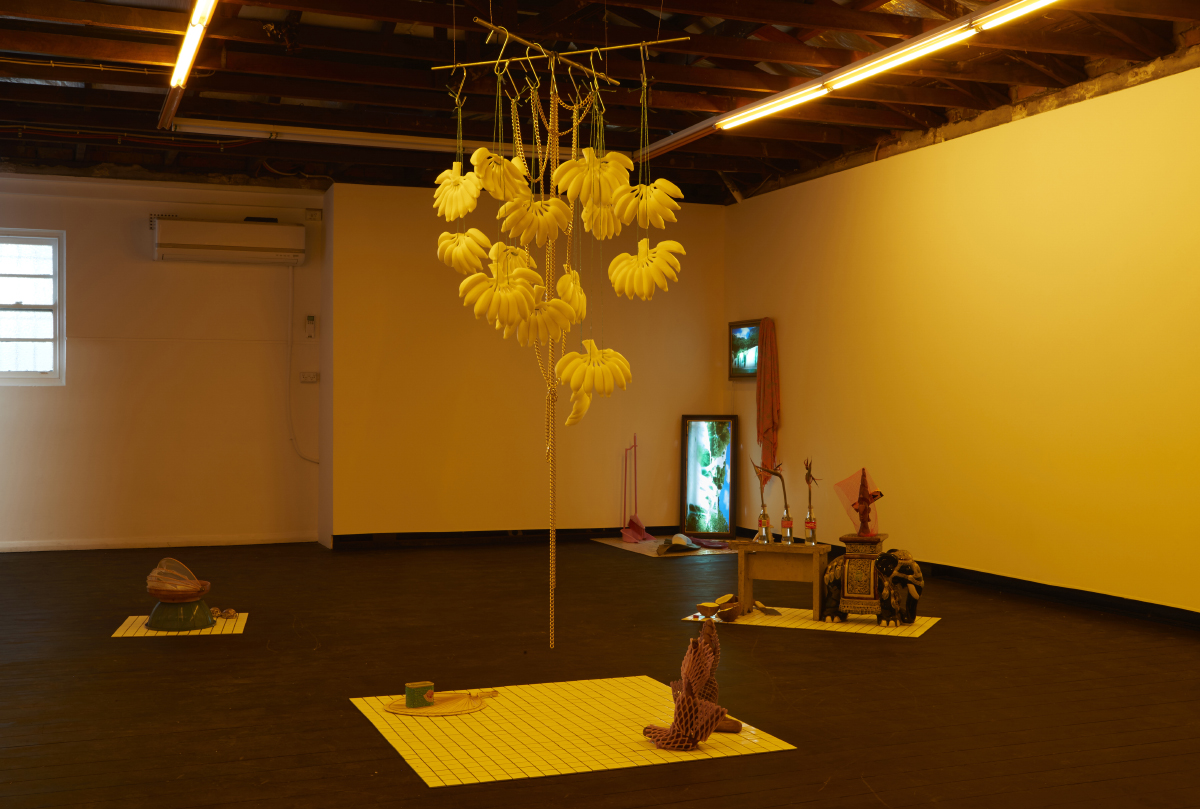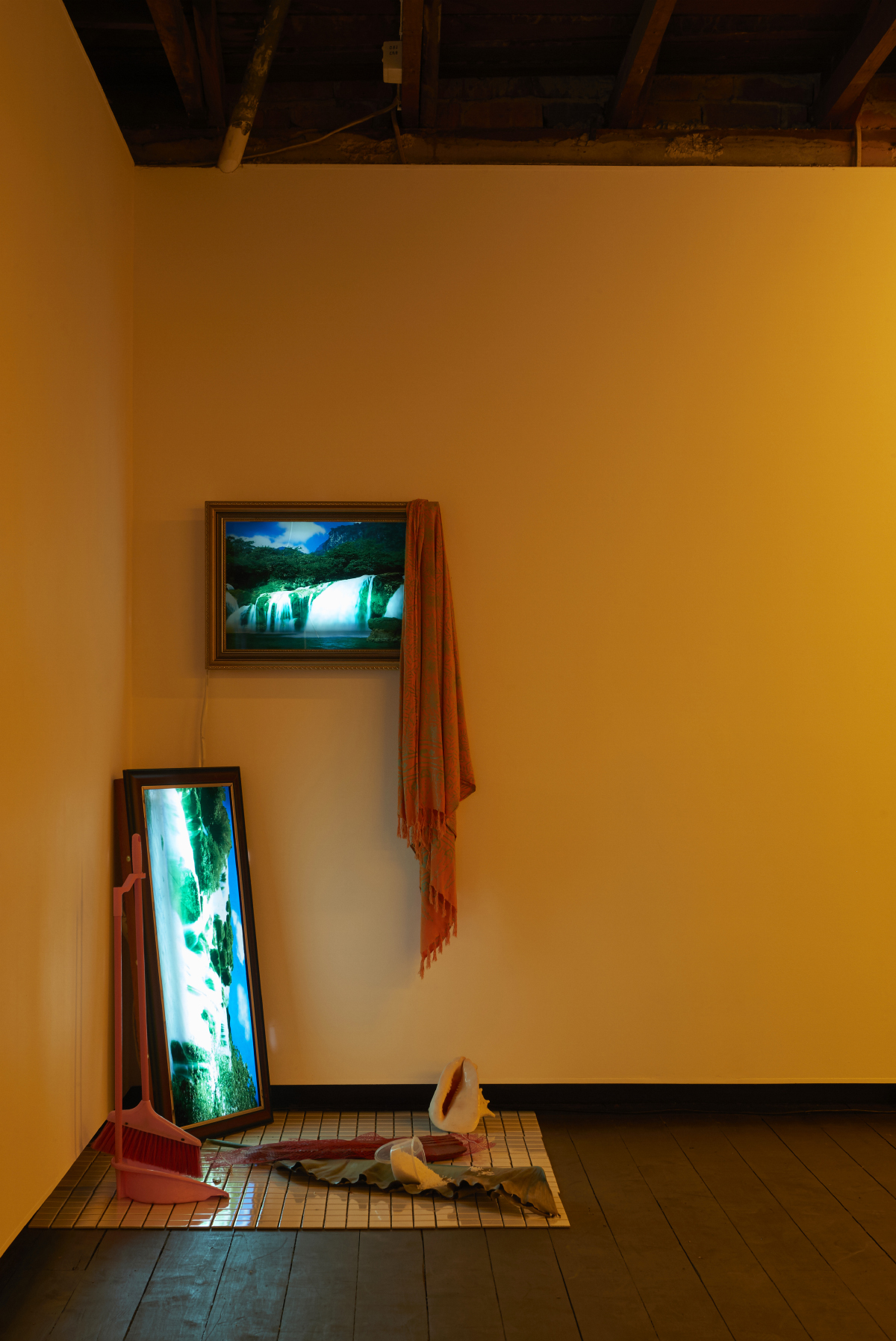Thoughtless Extravagance
Caroline Garcia
Opening 02.11.16 6-8pm
Artist Talks 25.11.16 6-7pm
Thoughtless Extravagance refers to a desire to splurge during critical times. This exhibition adopts the format of an immersive installation built around the concept of a Palengke, a type of public marketplace that is common throughout the Philippines. A series of sculptural tableaux and video works create the framework for this cultural milieu, in order to interrogate the hierarchies of taste, class and race.
The title of the exhibition is taken from The Civil Code of the Philippines that operates to protect people from each other, in this case, prohibiting any incidents of ‘thoughtless extravagance.’ The rationale for this legal provision outlines: “when the rich indulge in pleasure or display during a period of acute public want or emergency, they may unwittingly kindle the flame of unrest in the hearts of the poor who thereby become more keenly conscious of their privation and poverty and who may rise against the obvious inequality.” (Tolentino, I Civil Code of the Philippines (1990), pp. 91)
In Thoughtless Extravagance, a playful choreography emerges through the assemblage of disparate objects and images that include banal, everyday items, sculptural reproductions of tropical produce made from skin-whitening soaps, samples of popular culture and anthropological artifacts. These encompassing elements also function as markers of culture and class, and their arrangements merge the language of museology with kitsch sensibilities, nouveau riche aesthetics, and colonial ideologies of beauty and the Tropics.
Thoughtless Extravagance offers the eccentricities of tropical paradise, and its intoxicating colour, sound, movement and hospitality. It negotiates the complex relationship between cultural aesthetic and economic value by questioning exploitative social systems, especially notions of labour, privilege, wealth inequity, colourism and authorship. Thoughtless Extravagance is a space that carries histories of colonisation and seeks to confront contemporary consumer culture and capitalist imperialism, as well as the commodification of race, the shortcomings of anthropology and the impossibility of not fetishising otherness.






